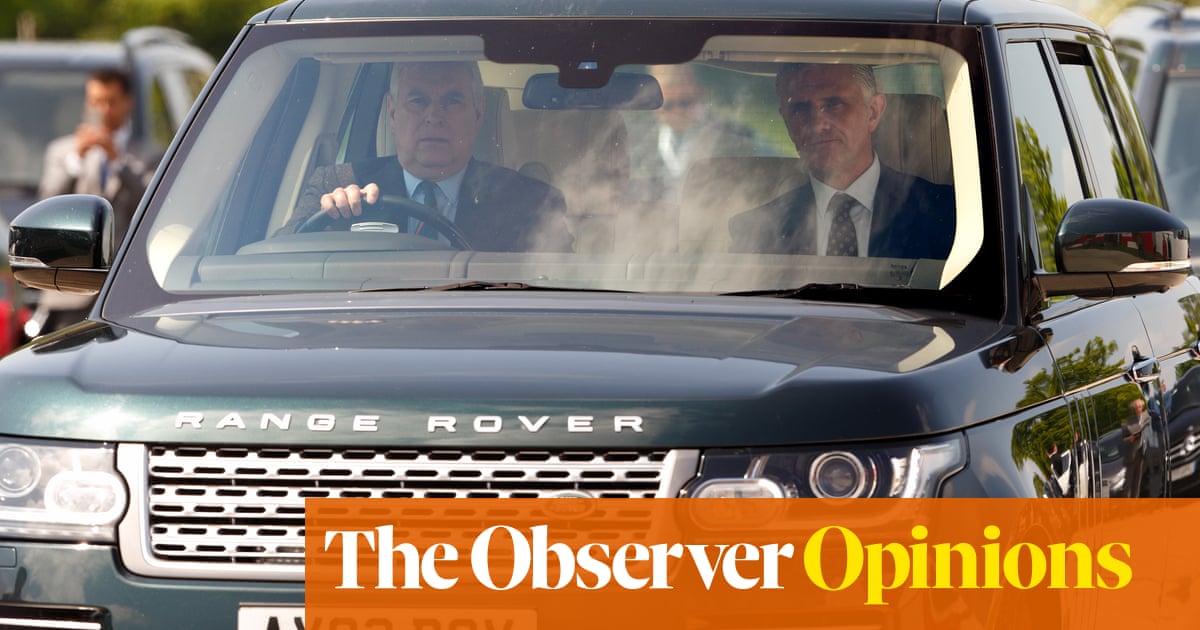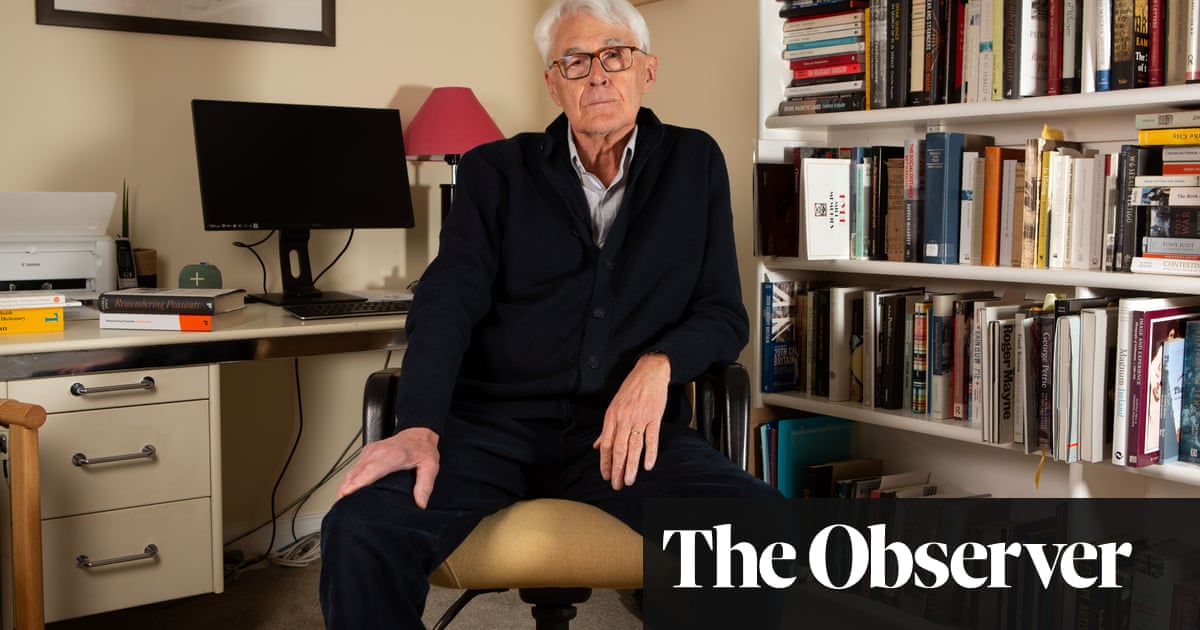
If you have tears – that is, any not used up on MPs struggling to get by, parents forced to choose between skiing and private schools, second homeowners who feel unwelcome, Etonians shut out of Oxbridge, and people cut adrift with unusable city wood burners – prepare to shed them on the latest affluent but afflicted minority: Range Rover owners unable afford their car insurance.
Thanks in large part to the Daily Mail, which has been prioritising their plight, a series of distressing cases has recently come to light. One owner, it reports, gave up after being quoted £14,000 to insure his £100,000 Range Rover Sport, and instead “bought himself a new Mercedes GLE”. Insurers, who say the vehicles are too likely to be stolen, seem to be deaf to the suffering of owners whose only fault was to buy an obese status symbol coveted by many hard-working criminals, as well as by Prince Andrew.
Another member of the luxury SUV community, who says she is unable to drive her child to school now that insurance for her £56,000 Range Rover Velar has risen to £890 a month, accused the car’s makers of “destroying lives”. As a result, she told the Mail, she would “never again” buy a Range Rover.
Which is a start, I suppose. It’s probably too soon to tell whether a combination of car thieves, leasing deals and inadequate security could achieve what years of campaigning and shaming on the colossal emissions of SUVs have failed to do: a general realisation that these vehicles are just not worth it. But, promisingly, the BBC reports that the scale of the thefts “may have a knock-on effect on demand for vehicles, particularly luxury models”.
To date, the best efforts of environmentalists, most recently by a group calling itself the “Tyre Extinguishers”, who let down tyres by night, have not conspicuously dented the market for SUVs. Even recent reports about their ever-growing bulk, to the point, in cities, that they sprawl on to pavements and into neighbouring parking bays, has been received, you might think, with a complacency that must seem extremely unfair to plus-sized airline passengers whose territorial incursions are, at least, unintended.
Given the abundant evidence on their harm, including by electric versions, massive SUVs in cities can only be a badge of contempt for others: a deliberate choice from consumers who are willing to advertise, along with their generous contribution to carbon emissions and serious injury, zero interest in sharing space.
The theft of SUVs on an alarming scale is not, naturally, the ideal way to address the popularity of the most unwelcome vehicles: in 2022, according the International Energy Agency, SUVs accounted for about 46% of global sales. It would obviously be more effective if in the UK, as in France, the costs of SUVs increased not just via insurance, but via official action to discourage buyers. Even before Paris announced its deterrent parking costs the government had introduced environmental messaging on car ads; SUVs were subject to an additional weight tax, designed to reflect the environmental impact of vehicles which consume more energy, cause more damage and, research indicates, hurt more people.
To this, Anne Hidalgo, the mayor of Paris will now add pricing that makes it three times more expensive to park an SUV. She calls the pricing “a form of social justice”.
Not to disparage this enviable result, but Hidalgo’s reforms might be harder to achieve in a country where, to add to government negligence and relentless product placement, the royal family is delighted to serve as a promotional arm of the Indian-owned Jaguar Land Rover. One member, Zara Tindall, is its valued brand ambassador. Others, from the late Queen to Prince Harry, last seen using the vehicles for his mercy dash, do much the same work gratis.
And the more venerated the royal driver, the harder it is to believe that there is anything truly antisocial about SUVs or wrong with advertising that pretends they are, whatever environmentalists might say, uniquely sympathetic to the landscape. Why would William, saviour of the rhino, creator of the Earthshot prize (rewarding “solutions to the world’s greatest environmental challenges”) drive the family around London in a new Range Rover if this endorsement contradicted everything he’s ever said about addressing the climate crisis?
It must, anyway, be one of the few lifestyle choices the Cambridges share with Katie Price and the Beckhams.
As for SUVs in general, visible royal patronage can only help offset a recent marketing setback: the Advertising Standards Authority’s (ASA) recent decision to ban two ads for Toyota’s Hilux SUV (“Born to Roam”). The ads, it said, “condoned the use of vehicles in a manner that disregarded their impact on nature and the environment… they had not been prepared with a sense of responsibility to society”. With an insolence understandable after years during which nobody sufficiently important cared less about irresponsibility, Toyota argued that the mountainous backdrop displaying the Hilux (“new levels of refinement, technology and style”) was demonstrating its capability to industries such as farming and forestry.
Until the ASA ban, Toyota was showing the ad on bus shelters: three-quarters of SUVs are registered to urban dwellers. Extensive Land Rover Defender-use in the BBC’s The Traitors may, however, have blamelessly re-established confidence in the connection between wild landscapes and luxury vehicles weighing 2.4 tonnes: “Fans swoon over the sexy 4x4,” the Sun reported.
News of Hidalgo’s Paris measures, in the week that global heating figures broke new records, again underlined the awed indulgence that remains the UK’s position on SUV pollution.
“Downsizing SUVs could be associated with major public health benefits,” one study calculates, “in addition to the benefits of electrification.”
Although slow progress with electric vehicles has been attributed to, among other things, Rowan Atkinson calling them “soulless” in the Guardian, highly visible SUV enthusiasts should perhaps be held just as responsible. And unlike Mr Bean, some of them should certainly know better.
Catherine Bennett is an Observer columnist












